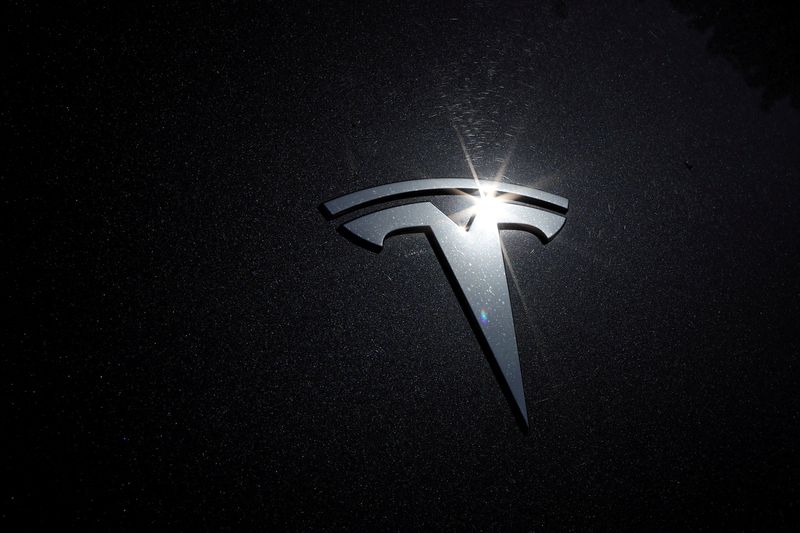San Francisco (Reuters) - The U.S. safety regulator said on Wednesday that it is reviewing consumer complaints that Tesla (NASDAQ:TSLA) vehicles are activating the brakes unnecessarily, in the latest regulatory scrutiny of Tesla's vehicle safety.
In May, Tesla chief executive Elon Musk said dropping a radar sensor from its partially automated driving system would address the so-called “phantom braking” issue, which some Tesla drivers have long complained about.
The Washington Post reported on Wednesday that owner reports of phantom braking to National Highway Traffic Safety Administration (NHTSA) rose to 107 complaints in the past three months, compared with only 34 in the preceding 22 months.
"NHTSA is aware of complaints received about forward collision avoidance and is reviewing them through our risk-based evaluation process," a NHTSA spokesperson said in a statement.
"If the data show that a risk may exist, NHTSA will act immediately."
In October, Tesla recalled nearly 12,000 vehicles over a version of its Full Self-Driving beta software that caused unnecessary braking or false collision warning.
Tesla said that false braking increases "the risk of a rear-end collision from a following vehicle," adding that it is not aware of crashes or injuries related to this condition.
The NHTSA has been also investigating Tesla's advanced driver assistant system following vehicle crashes involving emergency vehicles, while probing Tesla's decision to allow games to be played on a vehicle screen while a car is moving. Tesla later dropped the gaming feature.

Tesla recently recalled 53,822 U.S. vehicles with the company's Full Self-Driving Beta software that may allow some models to roll through stop signs, posing a safety risk.
Tesla was not immediately available for comments.